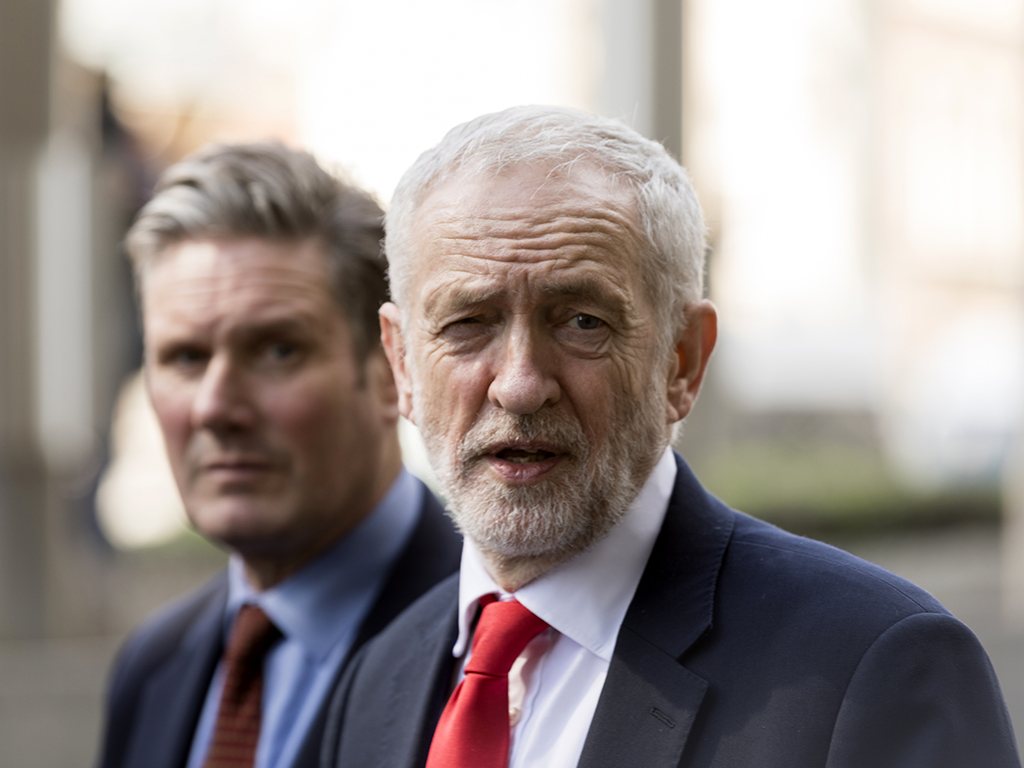
There are really only two possible election campaigns. It is either time for a change or it is better to stick with what we have. Evidently aware, because how could he not be, that the mood for change is clear, Rishi Sunak has inherited the job of Prime Minister in a position of perilous weakness. Forming an electoral appeal is not going to be easy for him, as interest rates go up and living standards come down, but in two successive outings at Prime Minister’s Questions we have seen the rudiments of his argument and rudimentary it most certainly is.
Sunak seems set to argue that Keir Starmer is as good as a regenerated Jeremy Corbyn, or perhaps as bad as a regenerated Jeremy Corbyn, depending on your point of view. Starmer, says Sunak, served as the shadow Brexit secretary under Corbyn and argued, implicitly if not explicitly, that Corbyn ought to be made prime minister, which casts doubt on his integrity and judgement. You can see why it irritates the Tory leadership that, not long ago, some of the Labour frontbench advocated a putative government that would have been led by a man they did not really regard as fit to hold high office. But it’s never going to work as an argument, and not just because it is more than a bit rich (richer even than Rishi Sunak) for the Conservatives, who have gone through five prime ministers in six years, to accuse anyone else of being volatile.
It is never going to work for Sunak to accuse Starmer of being Corbyn because he so obviously isn’t. Nobody is going to blame Keir Starmer for Jeremy Corbyn. They have Jeremy Corbyn for that. And nobody is going to blame this abstract entity called “the Labour Party” either because most people, if they think about it at all, will think that the Labour Party temporarily lost its way under Corbyn but has found a route back to acceptability under Starmer.
It is common to suggest these days that political rhetoric is founded in untruth and that most slogans are outright lies. The opposite is far more often the case; political accusations almost always fail when they are evidently untrue and the suggestion that Starmer is really Corbyn in disguise will fail for that reason. Sunak is saying more than that Starmer once held a shadow cabinet brief under Corbyn. He is trying to establish that the politics sponsored under the Corbyn dispensation in some way live on under Starmer and there are two possible ways in which he might develop this critique, neither of them very plausible.
[See also: Has Gavin Williamson’s luck run out?]
The first is that Sunak might allege that the Corbyn team is hiding within Labour, ready to spring back and take control. The only problem with this idea is that it is fantastical rubbish. The Labour left relinquished control of the party far more quickly and completely than most people expected. With no credible candidate for the leadership when Corbyn gave up, the Labour left effectively retired to the protest politics that was always its first love. There are few less diverting topics than the internal dynamics and voting patterns of Labour committees but, in every relevant chamber, representatives of the centre and the right of the party are prevailing. And, anyway, it is pretty hard to make the case that the Corbynites are in charge when the man himself is no longer a Labour MP and may well run against the party in his Islington North constituency when the election comes.
So, if this is all entirely implausible, maybe Sunak is making a subtly different claim. Maybe his attempts to couple Starmer with Corbyn are a clever way of hinting that Starmer is more left-wing than he looks. It’s not that Corbyn is coming back, it’s that he doesn’t need to because Starmer is putting a more appealing front on the same unpleasant offer. Already this is sounding like the Tories’ 1997 “demon eyes” caricature of Tony Blair and that could hardly have gone any worse. There is, it is true, quite a lot of doubt about what a Starmer government would actually do. And I suppose it is reasonable, if more than a little esoteric, to point out that Starmer’s political heritage is on Labour’s soft left. That hardly makes him a radical threat, though, and the better, more accurate claim might be that he is a bit too much like Ed Miliband. Maybe Sunak could pin on Starmer the desire to be a little profligate with taxpayers’ money in the pursuit of state-provided remedies for social problems. It doesn’t sound so bad, put like that.
It is not going to help, either, that Starmer appears to have promised Labour one thing while he was running for leader and is now delivering something else. It won’t help because that is precisely what Sunak intends to do himself, having just declared that he does not at all feel bound by the policy pledges he made while standing against Liz Truss for the party leadership this last summer. What is said in the heat of the hustings does not always survive the collision with reality and both leaders know that.
The opinion polls appear to be settling down to a Labour lead of 20 percentage points or more. Changing leaders did make sense for the Tories because they now have a better incumbent than they did. Better, but not nearly good enough. That much is clear from the strange decision to reappoint Suella Braverman as Home Secretary and it is clear from the desperate attempt to portray the Labour Party as in the grip of its radical left. Some of the party ardently wish it were so but it really isn’t.
[See also: Despite it all, the Tories are still clinging to their reputation for economic competence]





